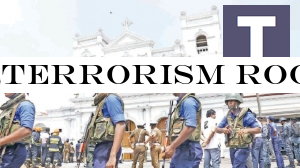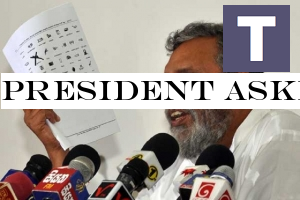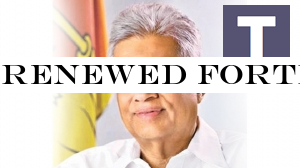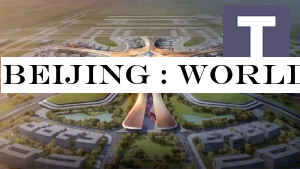Music
Trailers
DailyVideos
India
Pakistan
Afghanistan
Bangladesh
Srilanka
Nepal
Thailand
StockMarket
Business
Technology
Startup
Trending Videos
Coupons
Football
Search
Download App in Playstore
Download App
Best Collections
Srilanka

Institutions of religious denominations instruct their adherents to live and act according to the teachings of their religions. Religious authorities and all teachers of religion should interpret and explain the teachings of their religious founders to the people. Even those without a religion strive to be consistent with and try to be faithful to their convictions and stance.
Adherents of religions regard their ‘founder& as a very authoritative model to follow. Other religious founders are respected according to the nobility and integrity of their life. Some of their teachings are accepted, their guidance on many aspects of life is valued and appreciated according to the truth of what they have said.
The suicide bombers who caused a great calamity in Sri Lanka on Easter Sunday were acting according to the distorted religious education given to them.
Just days ago, the Mayor of Dablo, Burkina Faso told the news agency AFP that armed men burst into the Catholic Church and wanted the Christians to convert to Islam and they refused. They started firing and killed six people including a priest. They set fire to the Church. The congregation fled. They set fire to nearby shops and a health centre, government officials told the BBC.
The unacceptable understanding given by special instructors to the Sri Lankasuicide bombers had so radicalized them that they have been abnormalized into genocidal maniacs.
Peaceful Muslims follow the Qur&an. 99.99 of Muslims do not accept the fanatical ways of acting of the Taliban, Al Qaeda, ISIS, ISIL and IS who call themselves Muslims and wish to convert the whole world to Islam. The intelligence apparatus is unaware that this trend crept to Sri Lanka more than thirty years ago.
There is in human beings a natural hesitancy towards deep hate and injurious violence. This is reinforced by the guidance given by bimillennial religious traditions buttressed also by the noble Buddha who strengthens this attitude when he says that those who resort to violence do not follow the dharma. It is those who lead others through nonviolent means, knowing right and wrong who are guardians of the dharma. Those who live in truth, goodness, restraint, non-violence, moderation and purity are true leaders.
Buddhism is lit up by non-violence which recognizes that all living beings have a spark of the divine and therefore to hurt another being is to hurt oneself. There are Buddhists who have rejected taking up any arms even while knowing that they may be killed as a result. Buddhists too can defend themselves without resorting to killing anyone. But Buddhists cannot resort to oppressive violence.
Jesus Christ tells his followers to become &the salt of the earth and the light of the world& and not to be a mere self-preserving exclusive group. The goodness of salt is in its saltiness that should permeate the food to restore its taste. Too much salt makes insipid what is otherwise tasty and edible. Light dispels darkness. Light is needed to see and distinguish anything. Light of the mind is intelligence needed to gain proper understanding.
MUSLIMS AND CHRISTIANS PROTECTED
In the past when the Portuguese vied with Muslims over trade as they felt harassed and insecure, Buddhist kings provided them protection in Batticoloa. When the Dutch persecuted Catholics, the King of Kandy settled them in Wahakotte where Catholics still live because their forefathers kept the faith without the leadership of a priest. (In Japan, Catholics kept their faith and way of life for three hundred years without a Catholic priest!) Buddhists would be following their best traditions when they avoid all manner of violence and promote inter community harmony and understanding. But today the people are put in jeopardy by political instability and the public display of rivalry and disunity at the summit of power and the irresponsible Buddhist politicians of the government and the opposition insensitive to the needs of national solidarity and harmony.
It is very saddening to note that some mobs led by monks have forced open the gates of hell to satisfy their confused hearts& deposits of unsettled aggressive yearnings by venting feelings of hatred towards peaceful Muslims by destroying their mosques and business places, after the terrorist attacks of Easter Sunday. Is the intolerance and extremism against non-Buddhists seen in Myanmar to be imported to Sri Lanka to counter Muslim extremists
The close connection of uncivilized, abrasive, law-breaking thickheaded politicians& evasion, irresponsibility, subterfuge, lies and violence being the order of the day, religion and race are taken for granted as handy tools to make instant political profits. How they connect religion to politically aligned violence and disorder needs to be discussed even though, today, most people rightly think that violence is incompatible with any religion. The veneer of superficial religion grafted to politics and warped by racial, cultural prejudice, lies and violence has done great injustice to people and soaked this country in so much slaughter. Bloodshed resulting from national disunity and devastation is a harvest of the badly educated and opportunistic politicians seeking cheap popularity.
MISGUIDED TERRORISTS& VIOLENCE
Anyway, according to theistic religions, God cannot be related to violence. It is against Godnature. Faith is an interior activity of the mind, the will and memory. Faith arises through understanding and belief of reliable witnesses who testify to the veracity of what they have experienced and come to know and have transmitted to others by oral narrative or written document. It is this faith that nurtures and motivates Christians& way of social behaviour.
Anyone could share oneexperience and faith with another and persuade him/her to embrace the belief of the proclaimer who speaks in a reasonable and convincing way. Violence may subjugate and conquer but does not persuade or convince anyone. Violence is contrary to the spirit of religion. All are free to change oneviews, to accept and change even religious belief. But it has to be absolutely free and voluntary. But brainwashed fanatics have been made to think that their religious belief justifies extremism, violence and terrorism for their weird ends.
The Taliban, Al Qu&ida, IS of the Salafis, Salafi Jihadists, Wahhabis, are global terrorists who now do not pursue any victory in battlefields. They go after their politico-ideological objectives through intimidation, imposition of fear and terrorist attacks of the innocent. Miseducation makes them consider all other Muslims as apostates and other people as ‘infidels&. But if they and all the Muslims knew the shared beliefs regarding Jesus and Mary as stated in the Bible and the Qur&an, they would not become so aggressively anti-Christians. They would interpret Jihad as a spiritual struggle and not one of violence directed towards anyone. Such understanding would be compatible with the world of today. Only wise teachers could give a proper education and give life guidance by helping students towards right thinking.
RELIGION AND REASON
Generally, the human being bases his thoughts, words, judgements, actions on reason. Religious founders proclaimed their words and appealed to reason. When a religious founder was confronted with emotion filled argumentative opposition, he appealed to reason, explained things further to ‘shed more light& and give a better understanding of what was originally stated.
Theists conceive God as reasonable. However there is among some Muslims like the Taliban and IS, the view that Allah transcends even rationality and that God is not bound by reason. Here, Allah is understood to be absolutely transcendent, that is to say, ‘so absolutely free& that he is not bound by human categories of thought of right and wrong, good and evil, just and unjust and love and hate. Some, akin to the fanatical extremists go to the extent of saying that Allah is not bound by his own word.
Similarly, some Buddhist leaders with shady political inclinations here have even dared to say that advocating non-violence is a mistake that the Buddha had made! Even though the Buddha was one of the most prominent in human history to uphold the sublimity of human reasoning, there are many even among his followers who get emotionally worked up and act abandoning reason completely.
FRIENDLY INTERRELIGIOUS DIALOGUE
The recent unfortunate happenings should lead not only Christians and Muslims but all those who adhere to religions to engage in friendly and respectful interreligious dialogue in order to come to a better understanding of the beliefs of one another and to launch and establish better relations, human fraternity and national solidarity as we live in and share a pluralistic world. This would dispel suspicion and also help prevent terrorism from within and outside. Even though political leaders do not, the people and religious leaders should understand that brainwashed fanatical terrorists, by their mayhem in a few places, are threatening the all the people of Sri Lanka and the rest of the world.
Responding to this situation, there is today in all the main religions a movement towards frank communication, fraternal sharing and social integration on the basis of the common humanity that we all share.
This attitude not only eschews any kind of violence in any human community, it could lead to and promotes the elimination of all means of international violence beginning with nuclear armaments, weapons of mass destruction, bombs with poisonous gases and all armaments and ruinous means meant for engagement in war.
There is also today among the main world religions more openness in interreligious dialogue and communication, a sincere search for better mutual understanding and social integration on a global scale and the conservation and preservation of the planet earth for the younger generation of today and the future generations yet to be born on earth, with the world population expected to spiral to over 11 billion by 2050. Intelligent understanding, formation of convictions in the mind coordinating with sentiments and refined feelings of the heart need to be well imbued in all human beings through quality integral education from their young days.
TOWARDS A NEW WORLD ORDER
The enormous resources, energies and personnel now set apart for projects of war by most countries could be diverted to projects of global human development and peaceful progress in a new world order. In this context, violence and terrorism originating from religious fanaticism becomes criminal and totally unacceptable. Honest international cooperation could eliminate it.
Due to most acts of fanatical terrorism coming from those who claim to be the true interpreters of Islam, many countries in the world, including those with a majority of Muslims, are concerned about sudden and violent attacks of fanatical extremists.
Sri Lanka cannot adjust the world to suit her requirements. Cognizant of this fact she could coordinate with the rest of the world to find a modus vivendi, a way of living upholding and promoting human dignity and equal rights of all people. She should not only actively cooperate and collaborate with the United Nations in general but also the countries that are prioritizing anti-terrorist programmes in particular. Political leaders should wake up from their self-indulgent partisan political slumber to positively contribute new thinking and initiatives to create a world of coexistential equilibrium within a new world order so that all may live in happiness and peace.
- Details
- Category: Srilanka
Read more: TERRORISM ROOTED IN MISGUIDED RELIGIOUS BELIEF
Write comment (96 Comments)
The Elections Commission asked President Maithripala Sirisena to seek Supreme Courtopinion with regard the holding of the Provincial Council Election, Elections Commission Chairman Mahinda Deshapriya said yesterday. The Chairman said, &All three members of the Elections Commission who met with President Maithripala Sirisena recently asked to seek the Supreme Courtopinion with regard to holding of the Provincial Council Election and he informed the Commission that he wants to seek the Attorney Generalopinion prior to that.&
- Details
- Category: Srilanka
Read more: President asked to seek SC opinion on holding PC polls
Write comment (99 Comments)
Prime Minister Ranil Wickremesinghe has vowed to take stringent security measures to prevent Islamic State (IS) terrorism from raising its head again adding that the Security Forces and Police have apprehended those involved in the Easter Sunday attacks that killed 258 people. The Prime Minister addressing a group of representatives of civil societies and trade union collective at Temple Trees appealed to the people not to support extremism or religious fanaticism.
- Details
- Category: Srilanka
Read more: RENEWED FORTITUDE TO FIGHT TERRORISM – PM
Write comment (97 Comments)
(CNN) — When China's air industry hits the news, stories are typically centered on passengers going rogue, punching each other, trying to wrestle open emergency doors mid-takeoff or dangerously tossing coins into airplane engines for luck.While alarming and fascinating in equal measure, these headlines conceal another tale -- one of a country undergoing a breakneck expansion into the world of flying as its people take to the sky in rapidly increasing numbers.In the space of barely more than a decade, China has transformed from a nation where few had ever experienced air travel to one where millions of its citizens are flying not only across their own vast territory, but to destinations around the world.Such is the pace of China's ascension to the jet age that stories of wayward passengers are perhaps inevitable -- even if they obscure the fact that many air journeys in China are incident free.But there's more to come. Much, much more.Beijing's new Daxing International Airport conducted its first flight tests with passenger aircraft on May 13.
Even as China is on course to overtake the United States as the world's biggest air travel market within the next three years, the country's hunger for aviation seems set to continue growing exponentially.To sate that hunger, the government has embarked on an airport building program on a scale rarely witnessed before anywhere. Billions upon billions of dollars are being poured into runways and terminals that will plug the entire country directly into the global transport network.China currently has around 235 airports, but with many lacking the capacity to sustain the coming increase in passenger numbers and flights, government officials estimate around 450 airports will be needed across the country by 2035.That's the same year aviation analysts predict China will be handling a quarter of all the world's air passengers.Related contentInside India's aviation revolution and what it means for travelersCheung Kwok Law, director of policy at the Chinese University of Hong Kong's Aviation Policy and Research Centre, tells CNN Travel Beijing's super-heated expansion into aviation is aimed at future-proofing against demand but also to generate economic growth."The government is really looking ahead," he says, "not only to meet the current demand but to stimulate future demand for air transportation."While much of this expansion is taking place in cities and districts that many people outside of China or Asia may never have heard of, it's also highly visible in Beijing, where construction on the multibillion-dollar Daxing International Airport has just entered its final phase, with the first round of flight tests taking place on May 14.The new Beijing Daxing International Airport is said to have the world's largest single terminal and is designed to handle more than 100 million passengers annually.The new Beijing Daxing International Airport is said to have the world's largest single terminal and is designed to handle more than 100 million passengers annually.Kevin Frayer/Getty Images AsiaPac/Getty ImagesAs we move towards the third decade of the 21st century, airport superhubs are nothing new. But Beijing's sprawling creation -- designed by the late architect Zaha Hadid and her Chinese partners -- is almost breathtaking in its ambition.Due to open in September of 2019, it will feature four runways and a terminal the size of 97 soccer pitches.Related contentThe most exciting new airports opening in 2019China's capital has long been in need of a second global gateway.Handling more than 100 million passengers in 2018, Beijing's existing Capital International Airport is now the second busiest airport in the world after Hartsfield-Jackson Atlanta International Airport and is hitting full capacity.When the new Daxing Airport opens, Beijing Capital will not close. Instead it will continue to handle airlines like Air China and Hainan Airlines, giving the city an extra boost of capacity as the number of air travelers shows no sign of abating.Where are the airports needed mostWhile China's plan to build more than 200 airport facilities may seem extraordinary, it is the speed rather than the scale of this ambition that is remarkable. It still pales beside the 5,000 public airports serving US towns, cities and communities."I don't think the expansion of airports is excessive at all," says Law."There are three international airports in New York and five in London; Beijing will open its second airport this year. Shanghai, with over 20 million people, will construct its third airport and Guangzhou, with 17 million people, will construct its second airport."According to the Civil Aviation Administration of China (CAAC), in 2018, Chinese airports handled 1.264 billion passengers, up 10.2% over 2017, with 37 of the country's airports handling over 10 million passengers in a year.Beijing Daxing AirportBeijing Daxing International Airport, seen here in a rendering, will open in September, 2019.Courtesy Zaha Hadid ArchitectsAt present an average of eight new airports are opening in the country every year, while some facilities are being expanded and upgraded -- but there are concerns within China that those already open are failing to meet modern expectations.Related contentThese are the world's best airports for 2019"Service has improved substantially, but existing airports are far from adequate and are unevenly distributed throughout the country," Dong Faxin, director of CAAC's development and planning department, said in a report issued late last year outlining China's airport construction ambitions.A large chunk of the upcoming facilities will be located in the Yangtze River Delta region, the Beijing-Tianjin-Hebei region and the Guangdong-Hong Kong-Macau Greater Bay Area, as well as the Chongqing and Chengdu city clusters.These are the areas with the highest populations but rely on a few hub airports to handle all passenger traffic. In the coming years, they will each have new world-class airports for their individual centers of population.Shanghai Pudong International Airport is China's second busiest airport after Beijing Capitol. Shanghai Pudong International Airport is China's second busiest airport after Beijing Capitol.JOHANNES EISELE/AFP/AFP/Getty ImagesChengdu Tianfu International Airport, for example, will open in 2020. It'll be Chengdu's second aviation hub, easing the pressure on busy Shuangliu International Airport.New airports will also be built in China's west, where there are currently fewer facilities. This will aid the development of this region both for business and tourism but also further Beijing's push to exert its influence over far-flung regions."The mainland government has a very clear development strategy to promote the economic development in the less developed areas and locations like the western and northeastern parts of China," says Law."Providing air traffic support will be vital to the development of these areas and to achieve a more balanced economic development between the coastal region and more remote areas."Chengdu's new Tianfu International Airport, due to open in 2020, was designed by a consortium made up of the China Southwest Architectural Design and Research Institute, China Airport Construction Group Corporation and French architectural firm ADP Ingenierie.Chengdu's new Tianfu International Airport, due to open in 2020, was designed by a consortium made up of the China Southwest Architectural Design and Research Institute, China Airport Construction Group Corporation and French architectural firm ADP Ingenierie.ADP IngénierieAirports for the futureThe upside to building new airports from scratch is that each facility can be developed to meet today's high-tech demands while also keeping growth and wider transport infrastructure in mind.Airports today are not standalone facilities and the most efficient seamlessly link with other modes of transport such as major road arteries and the country's high-speed rail network, which the Chinese government has been promoting heavily.The flagship new Daxing airport is seen as a blueprint, albeit on a much bigger scale, for others, incorporating a 350-kilometer per hour rail link to the city.It will initially accommodate 72 million passengers and two million tons of cargo annually, rising to at least 100 million passengers and four million tons of cargo a year when fully opened.Daxing's creators are also redesigning the way passengers use airports by combining one of the world's largest terminal buildings with short walking distances, allowing travelers to easily reach their gates through a unique layout and design.Economic setbacks loomIn many respects it seems China is unstoppable in its growth. Building hundreds of new airports is merely one step for a country reinventing itself on the way to becoming the next major superpower.However, there are doubts the country's economy will hold up long enough, or attain the expected levels of growth, to see all these planned airports become a reality.The recent economic slowdown is the worst some analysts have seen, exacerbated by a trade war with the United States and slumping sales in some key areas.Related contentThe most exciting new airports opening in 2019If a slump in tourism coincides with this dip, it could leave many of the planned airports on the drawing board -- especially those built as a response to growing inbound tourism. Any hit to the economy would also reduce the amount of outbound travel undertaken by Chinese citizens.But Law is optimistic about the situation."By 2035, it's expected global passenger travel will increase by 3.5% annually," he says."If you look at China, growth could be between 5-6% on average, much higher than the global average. In one estimation, China is expected to have a middle class population of more than 500 million in the next 10 years."So the economy may be slowing down moderately but the rising of the middle class will provide support to the aviation development in China -- both in terms of passenger demand as well as the demand for cargo transportation."Hainan AirlinesExperts worry that if the economy slows down, many of these future airports will barely have any flights.Matt FalcusPossible road blocks: Staff shortages, airspace imbalancesHowever, Law does acknowledge there will be challenges -- including a potential staff shortage."Globally, the current generation of aviation professionals will be retiring at a faster pace in the next five to 10 years," he says."While China plans to expand rapidly in the next decades, they will be facing an acute shortage in manpower and so far, I do not see the government paying sufficient attention on this subject."The environmental impact of air traffic increases is also a concern.Earlier this year, the UN launched its Carbon Offsetting and Reduction Scheme for International Aviation (CORSIA), aimed at addressing increases in total CO2 emissions from international civil aviation.Under the scheme, airlines in countries that have voluntarily opted to participate will be required to buy carbon offsets to compensate for their growth in CO2 emissions, and would begin tracking these emissions from January 1, 2019.Related contentInside Changi Airport Singapore's new 'Jewel,' home to world's tallest indoor waterfallAs of May 6, 80 states, representing 76.63% of international aviation activity, stated their intention to voluntarily participate in CORSIA. Unlike the US, China is not among them, though participation is mandatory as of 2027.According to data compiled by Australia's Griffith University's Institute for Tourism, in 2018 the US emitted 22.7% of all passenger Co2 emissions, followed by China at 10.4%.Another problem is China's notorious airspace management, which is largely to blame for consistent flight delays. Civil aviation only accounts for 20% of all traffic while the military controls 80%. In the US, the situation is reversed."In this respect, the rapid expansion of the civil aviation activities and the congestion of the airspace management will become more serious," says Law."In the country's 13th five-year plan, there are a couple of statements indicating the government will work on the liberalization and the restructuring of its airspace management -- but without further information [on how or when it will do this]."For passengers, the improvements can't come soon enough.Any increase in efficiency and choice combined with delay reductions can only be of benefit in a country with a seemingly insatiable demand for air travel -- and should result in fewer rogue passengers hitting the headlines
-
- Details
- Category: Srilanka
Read more: Beijing : World's largest aviation market
Write comment (99 Comments)
The prices of 64 drugs had been revised due to the appreciation of the value of the dollar (depreciation of the rupee), Health, Nutrition and Indigenous Medicine Minister Dr. Rajitha Senaratne had stated. Minister Senaratne had stated that the prices of drugs were reduced by 200 to 800 percent in the years 2016 and 2018. When the value of the dollar went up, the prices of drugs increased only by five percent in last year (2018). The prices of 64 drugs increased by 14 percent this year due to the value of a dollar increasing up to Rs. 183.
- Details
- Category: Srilanka
Read more: Drug prices revised due to rupee depreciation
Write comment (92 Comments)
Japan's Prime Minister Shinzo Abe played a round of golf with US President Donald Trump US President Donald Trump has dismissed concerns about recent North Korean missile tests, appearing to contradict his own national security adviser.In a tweet issued shortly after his arrival in Japan on Sunday, Mr Trump called the missiles "small weapons".US National Security Adviser John Bolton said on Saturday that the tests violated UN resolutions on North Korea. President Trump began a state visit to Japan on Sunday by teeing off a round of golf with Prime Minister Shinzo AbeThe two leaders ate breakfast together on Sunday, before heading out to play 16 holes of golf in Chiba, outside the capital Tokyo. Mr Trump has said he wants to strike a deal with Japan to address what he has called a trade imbalance between the two countries.
Mr Trump wrote: "North Korea fired off some small weapons, which disturbed some of my people, and others, but not me." He added: "I have confidence that Chairman Kim will keep his promise to me."Not for the first time, his tweet appeared to put him at odds with Mr Bolton, and also with his host nation. Mr Abe last week called the North Korean tests "extremely regrettable"Mr Bolton and Mr Abe both accused North Korea of violating UN resolutions. The contrast between the president and his national security adviser followed other recent divergences on foreign policy, including how to approach the crisis in Venezuela and US relations with Iran.
What weapons has North Korea recently testedA rapprochement between North Korea and the US appeared to be in the offing last year after Mr Trump and Mr Kim met in Singapore.But relations have soured in recent months after a second summit between the leaders in Vietnam ended without agreement.Amid the rising tensions, North Korea has carried out several weapons tests.The second summit between President Trump and Mr Kim ended without agreementEarlier this month, the regime tested several short-range missiles, launching them from the Hodo peninsula in the east of the country. North Korean state media said Mr Kim personally oversaw a "strike drill" testing various missile components.That test came after Pyongyang said it had tested what it described as a new "tactical guided weapon" in April.Neither violate North Korea's promise not to test long range or nuclear missiles. Yet, they are likely to cause unease in Japan.Speaking in Tokyo last week, Mr Abe mirrored Mr Bolton's comments, calling North Korea's recent missile launches "a breach of UN Security Council resolutions and extremely regrettable".
"While cooperating closely with the US and other related countries, we are planning to tackle this appropriately by strengthening enforcement of related UN Security Council resolutions," he said.North Korea fired a number of missiles over Japan in 2017, leading Mr Trump to tell Mr Abe his country could intercept missiles "if necessary".
The US president is there to discuss trade and security issues. North Korea's missile tests and nuclear programme are expected to be at the top of the agenda.Japan is considered to be one of America's most important allies, for security and economic reasons, and Mr Trump has sought to strengthen the relationship, making regular diplomatic trips to meet Mr Abe.
Their shared love of golf is one way they have bonded. They teed off on Sunday for a round at the Mobara course in Chiba.Aside from golf, Mr Trump will attend the final day of the sumo "basho" or tournament and meet Japan's new emperor, Naruhito.He will be the first foreign leader to meet the new emperor, who ascended the Chrysanthemum Throne at the beginning of the month.
Meanwhile, trade talks involving Trump's top trade representative Robert Lighthizer and his Japanese counterpart, Economy Minister Toshimitsu Motegi, are taking place.They are aiming to make progress on negotiating a trade deal between the two countries.Mr Trump believes their trading relationship is unfair. He told business leaders in Tokyo on Saturday that "Japan has had a substantial edge for many, many years".The trade situation will become "a little bit more fair", Mr Trump said, without elaborating
- Details
- Category: Srilanka
Read more: Trump dismisses North Korean tests of 'some small weapons'
Write comment (92 Comments)Page 357 of 392

 16
16





